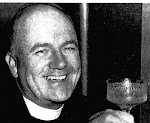*
The same church lobbyists with tailored suits and expense accounts show up every hearing, with the same arguments. Many of the same survivors show up for state senate hearings as well, paying their own way. Maryland state senators have heard the stories now six times, as SB 238 to bring their Statute of Limitations laws for child sex crimes into the 21st century has been through the Maryland State Senate now, in one form or another, six times. Related videos
Everyone acknowledges the bishops committed the crimes. How do we break the stranglehold the largest religious institution in the western world has on our judicial and legislative system?
Through the Executive branch, children, study your civics books and stay tuned for a post here tonight for more information about -
The Electronic Storm on the Horizon.
- Kay Ebeling
.
The City of Angels is Everywhere...
Also by Kay Ebeling: Read Sunset Boulevard, work in progress at City of Angels 2
This site is copyrighted by my statement. Kay Ebeling
Subscribe to:
Post Comments (Atom)










3 comments:
I just want to encourage the bloggers to continue writing to the national media to get the RCC 's name in there and not for good. Tell the stories and never stop telling them until the people in the pews, who seem to be brain dead, can get the picture of the evil that has been perpetuated since the middle of the 1st. century.
A state appeals court in California has reinstated a lawsuit against the Roman Catholic Diocese of Oakland by six men who say a priest molested them in the early 1970s, a ruling that could open the door to additional suits over sexual abuse by clergy.
The six, all brothers, sued in March 2007, saying they had discovered only recently that their psychological problems as adults were related to the molestation they suffered as children in 1972 and 1973. An Alameda County judge dismissed the suit in November 2007, ruling that state law had opened a one-year window, in 2003, to seek damages for sexual abuse that had allegedly occurred many years earlier.
Other judges around the state have reached the same conclusion on suits filed after 2003, said Irwin Zalkin, lawyer for Terry Quarry and his brothers, plaintiffs in the Oakland case. But the First District Court of Appeal in San Francisco ruled Tuesday that the same law allows one type of post-2003 suit: a claim by an adult who has just learned that a current disorder was caused by childhood sexual abuse.
Those adults have three years to sue the church or other employer of the alleged molester, if they can show that the employer knew or had reason to know of the danger and failed to take reasonable protective measures.
The brothers said in their suit that they had known what the priest did to them, but developed coping mechanisms that prevented them from fully understanding the abuse and its consequences. They said they made that connection only in March 2006, a year before filing suit.
A state appeals court in California has reinstated a lawsuit against the Roman Catholic Diocese of Oakland by six men who say a priest molested them in the early 1970s, a ruling that could open the door to additional suits over sexual abuse by clergy.
The six, all brothers, sued in March 2007, saying they had discovered only recently that their psychological problems as adults were related to the molestation they suffered as children in 1972 and 1973. An Alameda County judge dismissed the suit in November 2007, ruling that state law had opened a one-year window, in 2003, to seek damages for sexual abuse that had allegedly occurred many years earlier.
Other judges around the state have reached the same conclusion on suits filed after 2003, said Irwin Zalkin, lawyer for Terry Quarry and his brothers, plaintiffs in the Oakland case. But the First District Court of Appeal in San Francisco ruled Tuesday that the same law allows one type of post-2003 suit: a claim by an adult who has just learned that a current disorder was caused by childhood sexual abuse.
Those adults have three years to sue the church or other employer of the alleged molester, if they can show that the employer knew or had reason to know of the danger and failed to take reasonable protective measures.
The brothers said in their suit that they had known what the priest did to them, but developed coping mechanisms that prevented them from fully understanding the abuse and its consequences. They said they made that connection only in March 2006, a year before filing suit.
Post a Comment